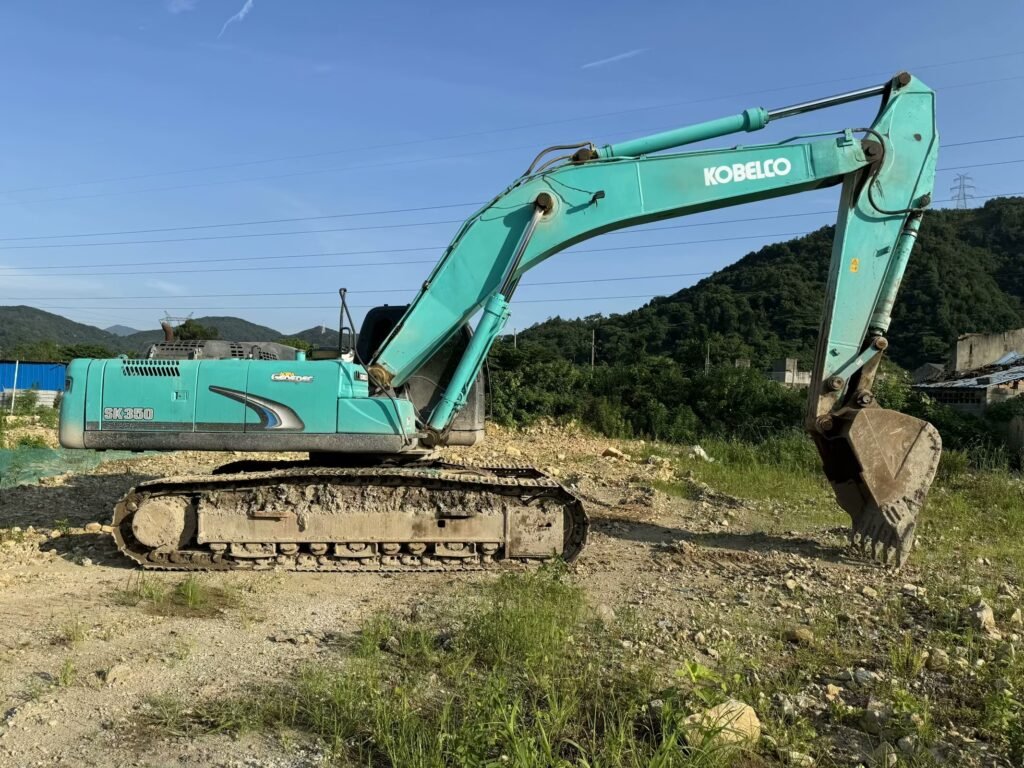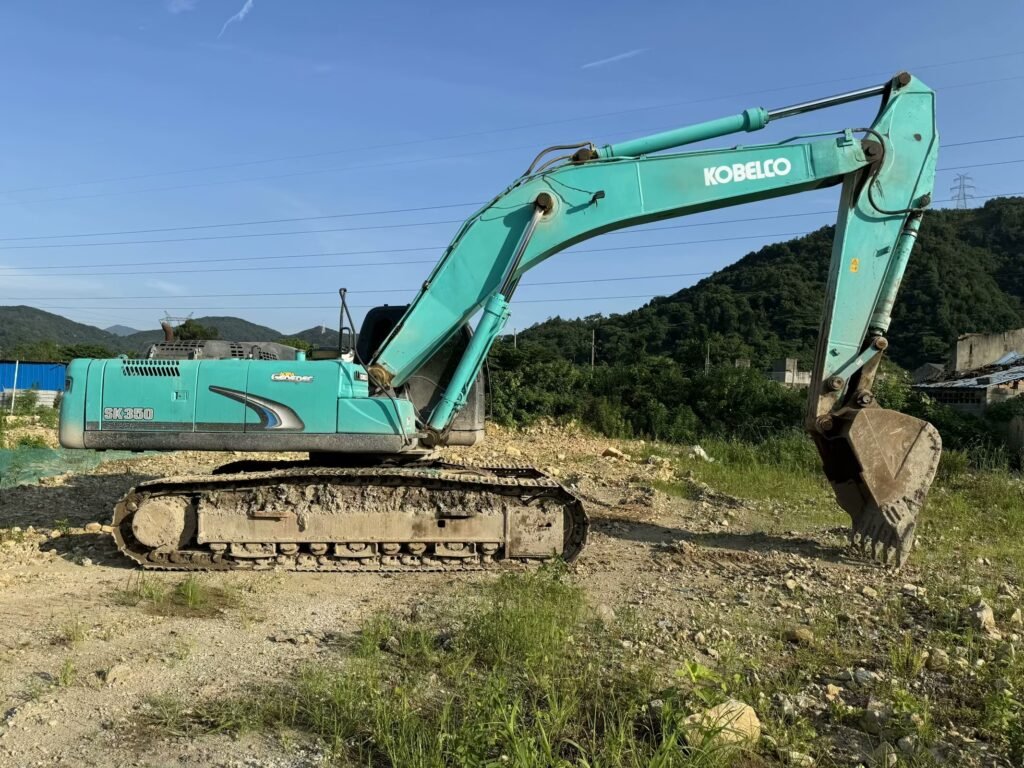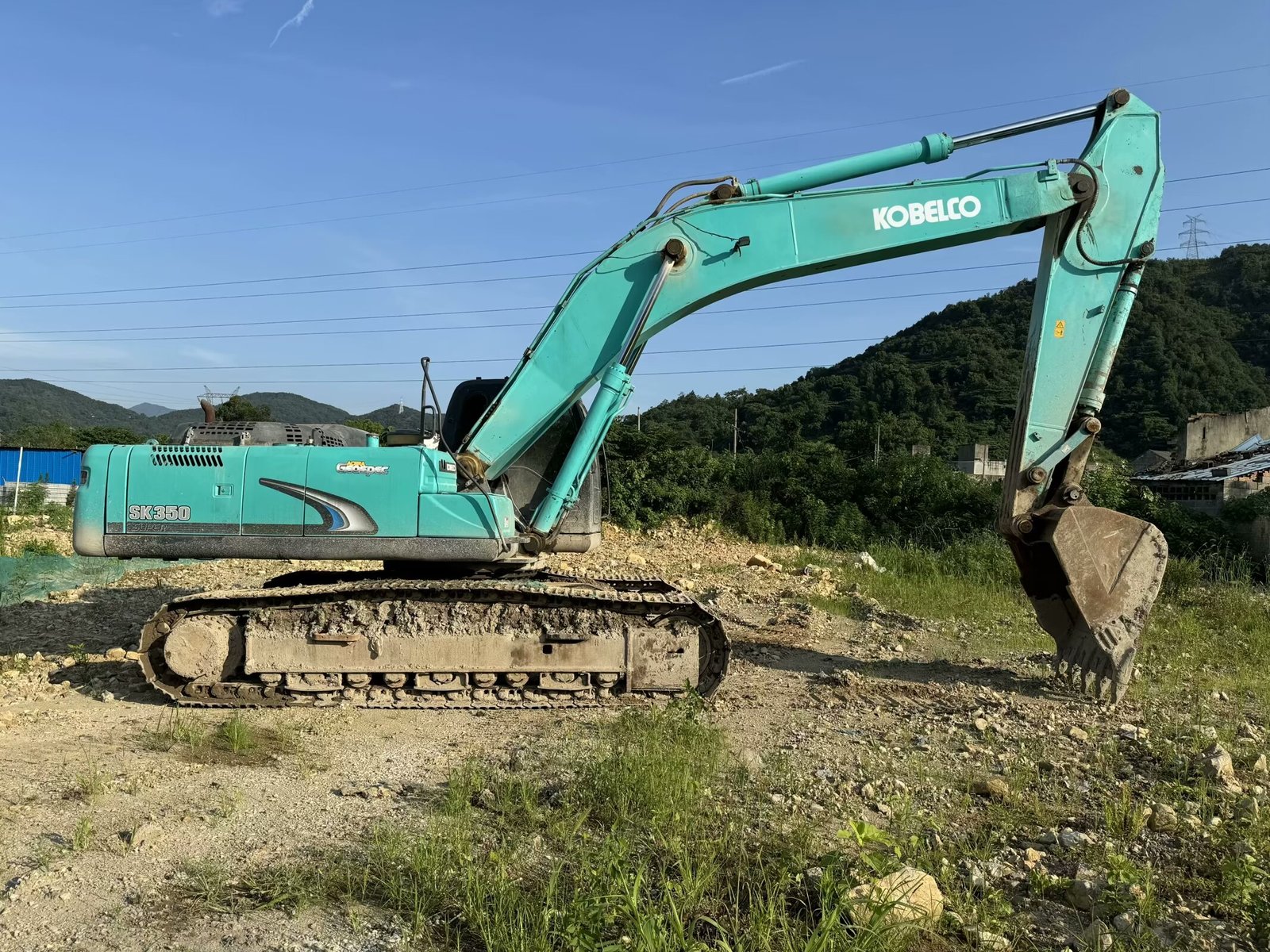1 Importance of Maintenance and Care
• Long-Term Maintenance Impact:
A construction company implemented a regular maintenance plan for a used excavator, including quarterly hydraulic oil and filter changes. This significantly improved the machine’s stability and operational efficiency, reducing the failure rate by 30% compared to similar models without regular maintenance.
2 Basic Checks and Routine Maintenance
• Daily Checklist:
Operators perform a daily check of oil levels, tire conditions, and the hydraulic system before each operation. For instance, an operator noticed darkened oil and promptly changed it, preventing potential hydraulic system issues.
• Regularly Replaced Components:
A rental company replaced drive belts every 1000 hours of use, greatly reducing unexpected downtime from belt breakage.
• Importance of Preventive Maintenance Plans:
A land excavation company avoided multiple failures due to equipment aging by implementing a comprehensive preventive maintenance plan, including a full inspection every six months, saving significantly on repair costs.

3 Identifying and Addressing Common Issues
• Methods for Identifying Common Failures:
An operator noticed slower digging speed and promptly identified and resolved a lack of hydraulic system pressure by checking dashboard warning lights and readings.
• How to Handle Hydraulic System Issues:
When a hydraulic system leak occurred, the operator stopped work and contacted a professional maintenance technician for inspection. Promptly replacing damaged hoses and seals prevented further damage.
• Maintenance Techniques for Engines and Drive Systems:
Regularly checking and replacing air filters avoided engine damage due to excessive dust inhalation, extending the engine’s lifespan.
4 Utilization of Professional Maintenance Services
• When Professional Services Are Needed:
A used excavator experienced difficulty starting. The operator contacted a professional maintenance service provider who diagnosed and quickly repaired an issue with the electronic control system.
• Choosing the Right Maintenance Service Provider:
A company compared service providers and chose the one with the best cost-performance ratio for regular maintenance, ensuring equipment stability.
• Importance of Maintenance Records and Service History:
A company found that regularly replaced oils and filters led to a significantly lower failure rate, prompting the establishment of detailed maintenance records for all equipment.
5 Controlling Maintenance Costs
• How to Develop a Reasonable Maintenance Budget:
A company analyzed historical maintenance data to develop a maintenance budget based on equipment usage frequency and work environment, effectively controlling costs.
• Strategies for Reducing Unexpected Repair Costs:
Regular inspections and timely repairs reduced downtime due to equipment failures, saving significantly on repair costs.
• Relationship Between Maintenance and the Resale Value of Used Excavators:
A company increased the resale value of a used excavator by 15% above the market average by maintaining good maintenance records.
6 Technological Upgrades and Improvements
• Evaluating Whether Technological Upgrades Are Needed for Excavators:
A company assessed its work requirements and decided to upgrade the hydraulic system, significantly improving operational efficiency and equipment durability.
• Improvements in Performance and Efficiency from Upgrades:
A land excavation company installed a new engine management system, increasing the operational efficiency of the excavator by 20%. The new system optimized fuel consumption, reduced emissions, and improved the precision of operations.
• Economic Analysis of Upgrading Used Excavators:
After conducting a cost-benefit analysis, a company decided to upgrade its equipment. The upgraded equipment not only improved operational efficiency but also extended the service life of the equipment.
7 Safety Operations and Maintenance
• Importance of Operator Training:
Regular training in safe operating procedures effectively reduced operational errors and equipment damage, ensuring operational safety.
• Safety Operating Procedures and Maintenance Guidelines:
Clear safety operating procedures and maintenance guidelines avoided multiple potential accidents, improving operational efficiency.
• Preparing for Emergency Situations:
Regular practice of emergency shutdown procedures and evacuation routes ensured that all operators could respond quickly and safely in emergencies.
8 Conclusion
• Summary of the Importance of Maintenance and Care for Used Excavators:
Maintenance and care are key to ensuring the performance and extending the lifespan of used excavators. Following these key points minimizes failures, improves operational efficiency, and ensures operational safety.
• Practical Maintenance and Care Suggestions:
Readers are advised to regularly inspect and maintain their equipment, promptly address any issues found, and collaborate with professional technicians to ensure the equipment is in optimal condition.



